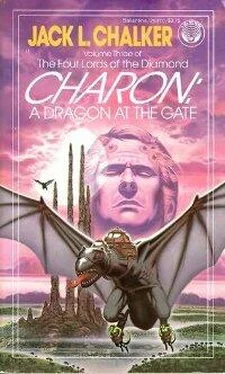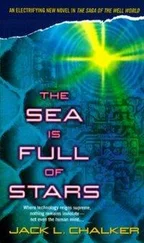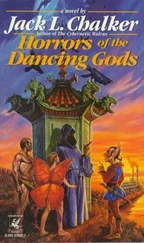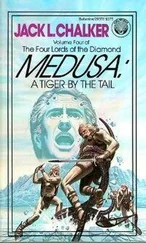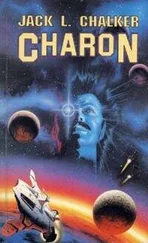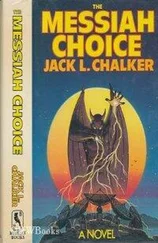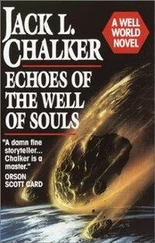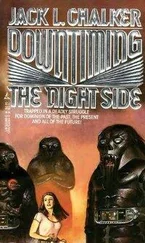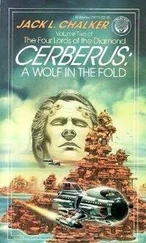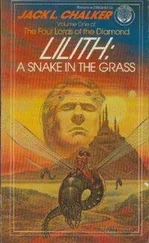Jack Chalker - Charon - A Dragon at the Gate
Здесь есть возможность читать онлайн «Jack Chalker - Charon - A Dragon at the Gate» весь текст электронной книги совершенно бесплатно (целиком полную версию без сокращений). В некоторых случаях можно слушать аудио, скачать через торрент в формате fb2 и присутствует краткое содержание. Год выпуска: 1982, ISBN: 1982, Издательство: Del Rey / Ballantine, Жанр: Фантастика и фэнтези, на английском языке. Описание произведения, (предисловие) а так же отзывы посетителей доступны на портале библиотеки ЛибКат.
- Название:Charon: A Dragon at the Gate
- Автор:
- Издательство:Del Rey / Ballantine
- Жанр:
- Год:1982
- ISBN:0-345-29370-3
- Рейтинг книги:5 / 5. Голосов: 1
-
Избранное:Добавить в избранное
- Отзывы:
-
Ваша оценка:
- 100
- 1
- 2
- 3
- 4
- 5
Charon: A Dragon at the Gate: краткое содержание, описание и аннотация
Предлагаем к чтению аннотацию, описание, краткое содержание или предисловие (зависит от того, что написал сам автор книги «Charon: A Dragon at the Gate»). Если вы не нашли необходимую информацию о книге — напишите в комментариях, мы постараемся отыскать её.
Charon: A Dragon at the Gate — читать онлайн бесплатно полную книгу (весь текст) целиком
Ниже представлен текст книги, разбитый по страницам. Система сохранения места последней прочитанной страницы, позволяет с удобством читать онлайн бесплатно книгу «Charon: A Dragon at the Gate», без необходимости каждый раз заново искать на чём Вы остановились. Поставьте закладку, и сможете в любой момент перейти на страницу, на которой закончили чтение.
Интервал:
Закладка:
The Warden Diamond.
Even in a society like the Confederacy, there were the superior misfits. For all of humanity’s perfections in environment, genetics, and culture, there was always the by-product of such manipulation—the perfect criminal. They were few, but they existed, and because they could operate even in such societies as the civilized worlds, undetected in many cases for years, they were in fact the best of the best—those with that great spark the Confederacy nurtured and cherished. The petty ones could be “re-educated” or mind wiped and given a new personality. But these master criminals, these geniuses of crime and villainy, were far too valuable to be thus squandered. And yet no civilized prisons could hold them so the frontier would become their unrestricted playground.
Catching them was not the real problem, although some managed to do great damage before they were apprehended. All the Confederacy did was breed a new kind of super cop, a master detective type perfectly matched to the quarry. There were few of them, too—the Confederacy feared them almost as much as the criminals they caught—but they did their jobs well. They and their personally tailored and custom-matched self-aware analytical computers found the politically corrupt, the master crook, the psychopath, the most dangerous men and women ever produced in human history. But where could these people be put?
The Warden Diamond provided the final answer.
Halden Warden, a legendary space scout even in his own time, discovered the system nearly two hundred years before the robot was discovered in Military Systems Command. Warden disliked almost everything about the Confederacy, most of all other human beings, but only such an antisocial personality could stand the loneliness, the physical and mental hardships that came with deep-space scouting.
Warden, however, was worse than most. He spent as little time as possible in “civilization,” often just long enough to refuel and reprovision. He flew farther, longer, and more often than any other scout before or since, and his discoveries set all-time records for their sheer volume alone. Unfortunately for his bosses, Warden felt that discovery was his only purpose. He left just about everything else, including preliminary surveys and reports, to those who would use his beamed coordinates to follow him. Not that he didn’t do the work—he just didn’t send the information back to the Confederacy until he felt like it, often years later.
Thus when the signal “4AW” came in, there was enormous excitement and anticipation—four human-habitable planets in one system! Such a phenomenon was simply unheard of, beyond all statistical probabilities, particularly considering how rare it was to find even one. They waited anxiously to hear the names the laconic scout would give the new worlds and his preliminary descriptions of them.
Then the report came, confirming their worst fears. He followed form, though, closest in to farthest out from the newly discovered sun.
“Charon,” came the first report. “Looks like hell.
“Lilith,” he continued. “Anything that pretty’s got to have a snake in it.
“Cerberus,” he named the third. “Looks like a real dog.”
And, finally, “Medusa. Anybody who lives here would have to have rocks in his head.”
The coordinates followed, along with a code confirming that Warden had done remote but no direct exploration—mat is, he hadn’t landed—and a final code, “ZZ,” which filled them with some fear. It meant that there was something very odd about the place, so approach with extreme caution.
They cursed Crazy Warden even as they assembled the maximum-caution expedition. A full-scale science team, with two hundred of the best, most experienced Exploiter Team members aboard, backed up by four heavy cruisers armed to the teeth. They knew that Warden’s reports were almost always right, but you never found out how until it was almost too late.
The huge F-type star had a massive solar system that included eleven gas giants, eight of them ringed spectacularly, as well as large numbers of comets, asteroids, and some large solid planets of no use. But the system had four worlds—four jewels—that stood out from all the rest, four worlds with abundant oxygen, nitrogen, and water.
And when they looked first at those four worlds, they were almost exactly at right angles to one another in their orbits.
The Warden Diamond.
Of course, as the planets were in far different orbits this diamond formation was quite rare. In fact it has not been precisely duplicated since man first saw it.
Still, there was an uneasy feeling that somehow the Warden Diamond was not a natural thing. The Exploiter Team was suspicious, as Warden himself had been, and doubly cautious.
Charon, the world closest to the sun, was a hot and steamy world. It rained a lot of the time there, and the dominant life seemed to be reptilian, almost dinosaur like. Seas covered much of the hothouse world, but although the atmosphere was hardly pleasant, man could live on it unaided.
The second world, Lilith, was almost textbook perfect. Slightly smaller than Charon, it was roughly seventy percent water but far more temperate and gentler in the landscape. Mountains were low, and there were broad plains and swamps. Its axial tilt was so slight there were few seasons anywhere on the planet, and while it was warm to hot, it was comfortably warm, almost resort-type warm. It was a blue-green world, rich in plant life that was different but not too different from what man knew elsewhere, and its creatures were insect like, from almost too small to see up to behemoths that still seemed harmless, perhaps even useful. It was the kind of world that terraformers aimed for and almost never achieved—and not a snake in sight.
Cerberus was harsher, but not much. Although it had great seasonal variations, none were all that unmanageable, and in the large tropical zones there was plenty of room for settlement—or there might have been if there had been some land. The trouble was, the entire world was covered by a great, deep ocean. Still, there was a strange sort of plant life there, which rose up from the ocean floor to break the surface and almost reach for the sky. Giant plant colonies, so huge, strong, and clumped together that they formed large, almost land like masses. The seas held promise, though, of huge and vicious predators. It would not be an easy world to live on, and they could see why Warden called it a dog, particularly when compared with Lilith.
Finally, farthest out, there was Medusa, a hard, cold, rocky world with frozen seas, blinding snow, and mountains broken with the only evidence of vulcanism on the four worlds. There were some forests, but mostly tundra and grasslands. It was an ugly place.
But back on old Earth, man had lived and built in lands at least as bad as Medusa. In the temperate zones people, with a lot of hard work and a lot of time, could even build a civilization there. Still, to want to go to a place like that and make it your home, well—you had to have rocks in your head.
Four worlds, from steaming hell to frozen tundra. Four worlds that still had temperature extremes that could be borne and air and water that could be used. It was incredible. Fantastic. And it was for real.
Not being crazy, the Exploiter Team chose Lilith as its main base, settling in on a beautiful island in a tropical lagoon. After a week or so of preliminary setup, smaller teams were sent out to the other three from Lilith to set up provisional base camps.
Once down, the Exploiter Teams were placed in strict quarantine from the military and all commerce with the Confederacy. It would take at least a year with the team serving as the guinea pigs, poking and probing and testing, before others would set foot on any of the worlds. They had shuttlecraft capable of traveling between the four planets, if need be, and ground and air transportation for their own work, but nothing interstellar. The risk was too great; man had been burned too many times to take any chances.
Читать дальшеИнтервал:
Закладка:
Похожие книги на «Charon: A Dragon at the Gate»
Представляем Вашему вниманию похожие книги на «Charon: A Dragon at the Gate» списком для выбора. Мы отобрали схожую по названию и смыслу литературу в надежде предоставить читателям больше вариантов отыскать новые, интересные, ещё непрочитанные произведения.
Обсуждение, отзывы о книге «Charon: A Dragon at the Gate» и просто собственные мнения читателей. Оставьте ваши комментарии, напишите, что Вы думаете о произведении, его смысле или главных героях. Укажите что конкретно понравилось, а что нет, и почему Вы так считаете.
